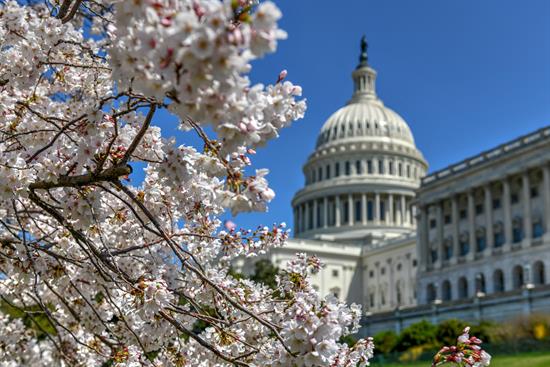- Meet Ralph
- Current Issues
- Serving You
- Emergency Preparedness
- Tele-Town Hall Signup
- Help with a Federal Agency
- Expedited Passports
- Visiting Washington
- Meeting Request
- Service Academy Nomination
- Congressional Commendation
- Appropriations Request
- Flag Request
- Federal Grants
- Congressional App Challenge
- Congressional Art Competition
- Surplus Books
- Internships
- Kids Page
- Media
- Contact
Blog
Supporting the CARES Act
Rock Hill, SC,
March 26, 2020
Tags:
Coronavirus
Here’s an important update on the coronavirus stimulus package, which is known as the “CARES Act.” This is the third major piece of legislation from Congress dealing with COVID-19. Yesterday, the CARES Act unanimously passed the Senate. Tomorrow (Friday), the House of Representatives is expected to vote on it. After digging through the details of this legislation, I am supporting its passage in the House. Yes, there are some elements that I’m not happy with as your Representative. Yes, there are a few provisions that will take time to iron out. Yes, it represents new federal spending that I frequently oppose during normal times. But until we are through this, we are not in normal times. COVID-19 has placed lives at risk, sent our economy into a spiral, put tremendous strain on our nation’s healthcare systems, and cost millions of Americans their jobs. The federal government needs to act. Even though this bill is not perfect, its flaws pale in comparison to the assistance it will bring to those desperately in need of help. Remember that was not the case in the 2nd coronavirus bill the week before last, where a “technical error” left in that legislation would have further devastated small businesses during this crisis. That’s a prime example of the bad outweighing the good, and I stood opposed to it. (Fortunately, changes were made by unanimous agreement to that bill afterwards.) Similarly for the CARES Act, I’m pleased that Nancy Pelosi failed in her 11th hour attempt to defile this bill with a wide range of Democrat fantasies that were totally unrelated to COVID-19. Things like minimum wage requirements, student loan forgiveness, more power for labor unions, scaling back immigration enforcement, elements of the Green New Deal, etc. – none of that made it into the final text of the CARES Act, which is good news. What we need is targeted, time-limited assistance, not someone trying to change the fabric of our society. In terms of what the CARES Act will do, here’s an overview of the key provisions, many of which are temporary during this crisis: 🔹 Direct checks to Americans: Up to $1,200 per adult, $500 per child. (Incrementally less for those earning between $75K and $100K, with no checks for those earning above $100K.) 🔹 $150 billion urgently sent to shore up our hospitals and healthcare systems, and raise stockpiles of critical items like ventilators, masks, gloves, etc. 🔹 $350 billion in loan guarantees for small businesses to cover payroll and manage debt. (Parts of these loans are forgivable under certain criteria.) 🔹 Critical funds to help the FDA’s emergency drug approval processes 🔹 Extension of unemployment insurance programs for up to four (4) months for the millions who are now jobless, plus an additional $600/week in unemployment benefits. 🔹 Additional financial help for states and local governments to support their efforts to combat COVID-19. 🔹 Six-month deferment on federal student loan payments, without penalty, as well as all student loans without interest. 🔹 $28 billion for our nation’s agricultural and farming industries. The list goes on from here. Friends, it’s important to remember that it’ll take a little time for various agencies to publish specifics on how some of these provisions will be implemented, particularly with respect to small businesses. Details and more information will be forthcoming ASAP. Again, this bill is not perfect, but for the good of the nation there must be compromise, particularly in this time of crisis. We also must be prepared down the road to address federal spending and debt, lest we not be able to respond the next time an unforeseen crisis hits. Our nation is going to get through this. And we’re going to be stronger on the other side. |
